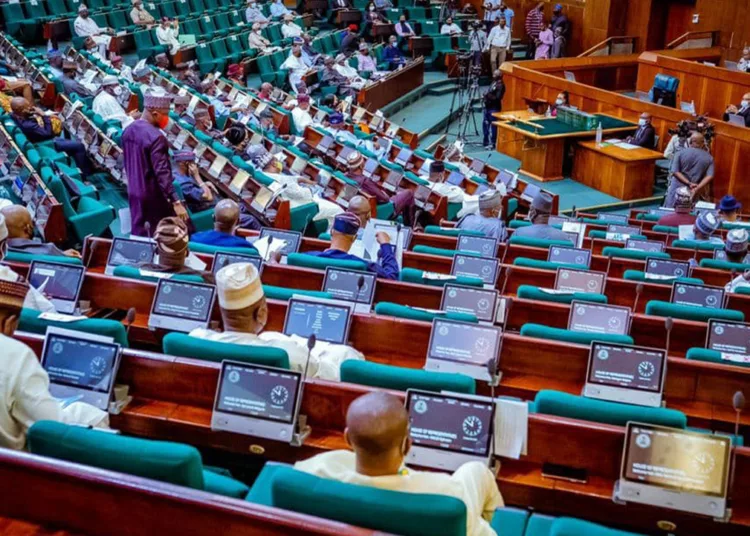House of Representatives yesterday mandated its Committee on Appropriations to make provision of N200 billion for the Ecological Project Office in the Presidency for flood preparedness, mitigation, response, recovery and relief packages in the 2023 budget.
The House also urged the federal government to immediately release the sum of N5 billion into the already created Special Ecological Fund Account of each of the 36 states and Federal Capital Territory (FCT) to mitigate the effect of the recent flooding that ravaged the country.
The House, however, enjoined the executive arm of government to submit a supplementary budget of N100 billion or more for the Ecological Project Office- as an intervention fund for mitigation, recovery and relieve programmes across the country.
The House made the resolutions while adopting a motion of urgent national importance moved by Henry Nwawuba and Ibrahim Isiaka on the “need for strategic planning to prevent the reoccurrence of flood and erosion disasters in Nigeria in 2023 and beyond.”
Nwawuba, in the lead debate, informed the House that that 33 out of the 36 states in the country, and the FCT were recently ravaged by flood, in which over 600 people lost their lives. He added that over 1.4 million people were displaced, while over 2.5 million people are in need of humanitarian assistance with over 60 per cent of this number being children.
According to him, “most of the affected states are agrarian economies which raises concern about impending food crisis, with 110,000 hectares of farmlands completely damaged, Olam rice farm submerged worth over $15m, 10 hectares of rice farm submerged in Kogi state.
“Transportation of food and other essential products such as petroleum products affected by the damaged roads and bridges and food inflation which is already of record high (23.3%) as at early November will increase further.
“Currently a bag of 50Kg rice cost about N48, 000, up by 48.8 per cent, while a bag of maize used for animal feed is about N29,000, up by 93 per cent.”
He recalled that “in 2012, 32 out of 36 states were affected by flooding, with 363 people killed, over 2.1 Million people displaced, about 7million people affected and a total loss estimate of N2.6 trillion recorded.”
The lawmaker expressed concerns that the country seems to be unprepared for climate, with a ranking of 162 out of 180 countries in the environment performance index. According to him, the implication is that the country could experience a food crisis, humanitarian crisis, health crisis and revenue shortfall in 2023.
“Flood disaster has been identified as one of the fall outs of global climate change which we have all been collectively responsible for. This trend would continue and even go worse if we do not see the care of environment as our individual and collective responsibility.
“The need to change our attitude towards the mother earth is of utmost concern if we really desire to put a check or control to these natural disasters that we are left to contend with. We have observed incident trends of late, amongst localities and even countries; it has become a very disturbing issue, the spate of flood risk exposure amongst vulnerable settlements and communities.
“Recent unpleasant experience in Nigeria could have been avoided or mitigated if we clearly identified and recognize the peculiarity of risk we are exposed to, based on our geographical positioning.”











